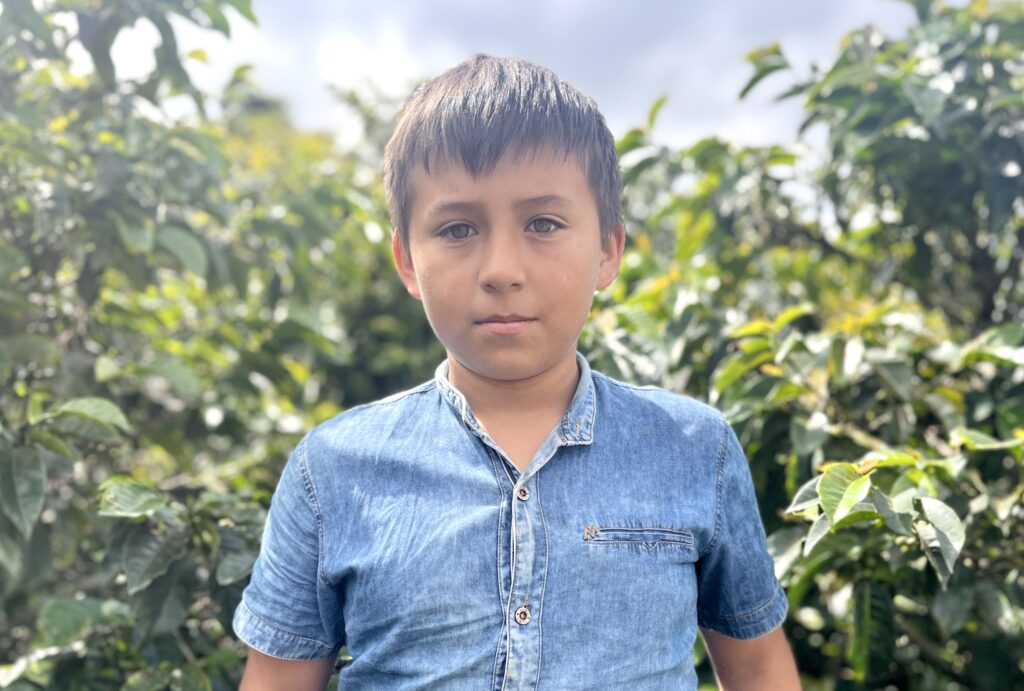Tell me, what does freedom and justice mean?
Give an autumn gift!

BY HANS OLAV ARNESEN AND FRODE NORDAHL
"Freedom and justice for the most vulnerable." That's the slogan for Caritas Norway's Harvest Action 2024. These are undoubtedly beautiful words, but what do freedom and justice really mean?
We ask philosopher Henrik Syse to help us understand these concepts.
What does fairness mean?
- If we go back to classical Greek thinking, justice is about a balance in society, where everyone does what they are best suited to do and should do, and is rewarded according to merit and order.
"What happens in the transition to Christian thinking, and further into modern times, is that you get an emphasis on the equality of every single human being," explains Syse.
- In the Christian tradition, although it has not always been possible to live up to it, there is a concept of justice that is linked to equality. All people deserve to be treated fairly. This doesn't just mean that you should be given what you deserve, or punished if you've done something wrong. It means that you should be treated in a way that reflects basic human dignity.
What does freedom mean?
- If we allow ourselves to go back to classical Greek thinking, freedom means not having a master over you.
Syse explains that this does not refer to the absence of any superiors, such as an employer or prime minister, but to the fact that you are not owned by anyone else, or constantly controlled by anyone other than yourself. "We also find this in modern freedom thinking," says Syse, "where a great deal is linked to the concept of autonomy.
- After all, autonomy literally means being your own legislator.
It's the staff and volunteers at Caritas Norway who have to put these fine words into action. What do they understand by the terms justice and freedom?
Herdis Nundal, head of the domestic department, believes that freedom has two directions, and that is freedom to something and freedom from something:
- Freedom for me is being able to do what you want within a certain framework, of course. But also freedom from captivity, poverty and distress.
Joseph Ceville has the onerous task of ensuring that newly arrived asylum seekers receive the guidance they need when they arrive in Norway.
- For me, justice is access to something we have a right or claim to.
The national arrival center that Ceville manages contributes to justice by providing asylum seekers with information about their rights and obligations.
- This increased knowledge gives people the power to make demands, as well as avoid possible occasions where they can be more easily taken advantage of.
Helena Aanstad is a lawyer and one of the advisors who provide legal assistance to people who experience injustice.
- For me, justice means that all people receive the treatment they are entitled to, based on equality, respect and recognition of their fundamental rights. It means that everyone, regardless of background, should have equal opportunities to live a good life, and that no one should be subjected to discrimination or unfair differential treatment.
"Many people in Norway probably take freedom for granted," says Aanstad.
- My mother fled Iran because her freedom and rights were taken away from her because she is a woman. Perhaps we only become truly aware of the value of freedom when it is threatened?
Tale Birkeland Hungnes is head of the international department at Caritas. She believes that justice is essentially about distribution:
- The most important aspect of justice is the distribution of power and resources. Caritas works both to empower the poor and oppressed, and to hold the rich and powerful accountable for unfair distribution. We see every day that this work makes a difference.
Birkeland Hungnes believes that freedom is closely linked to justice.
- At Caritas we work for the freedom to eat, the freedom to create your own livelihood, freedom from want. Aid can create dependency and subservience, but Caritas around the world works instead in a way that empowers people.
Ingrid Rosendorf Joys is Secretary General of Caritas Norway. She finds it fascinating that the answers vary so much.
- It's interesting to note that the terms freedom and justice mean very different things, depending on who you ask.
However, according to Joys, it is clear that everyone should support the fight for freedom and justice. She therefore makes a clear appeal:
- I encourage everyone to support this year's harvest campaign. This is a great opportunity to show charity and help more people get the help they need. Together we can work to create more justice, freedom and dignity for all.
Support this year's harvest campaign!
Donate by clicking here
Vipps: 93084
Gift account: 8200.01.93433 mark the harvest campaign
Read stories from people in vulnerable situations who have been helped by Caritas here:
Read about Ahmed (29) from the West Bank here
Read about Florence from DR Congo here
Read about Katarzyna and Mickael and their struggle here
Read about Agate from Latvia who was helped by Caritas Trondheim here
Thank YOU for caring!